Controlling temperature is essential to many processes across different industries, including refineries, laboratories, and manufacturing facilities.
At Allometrics, we have provided traceable thermometer calibration services for more than 40 years, making us the preferred ISO 17025 accredited laboratory in the region.
What Are Industrial Thermometers?
Industrial thermometers are instruments used for temperature measurement in many industrial operations.
Incorrect temperature readings can disrupt the manufacturing process and cause considerable damages in both product quality and revenue. Additionally, inaccurate temperature readings can endanger the life of workers.
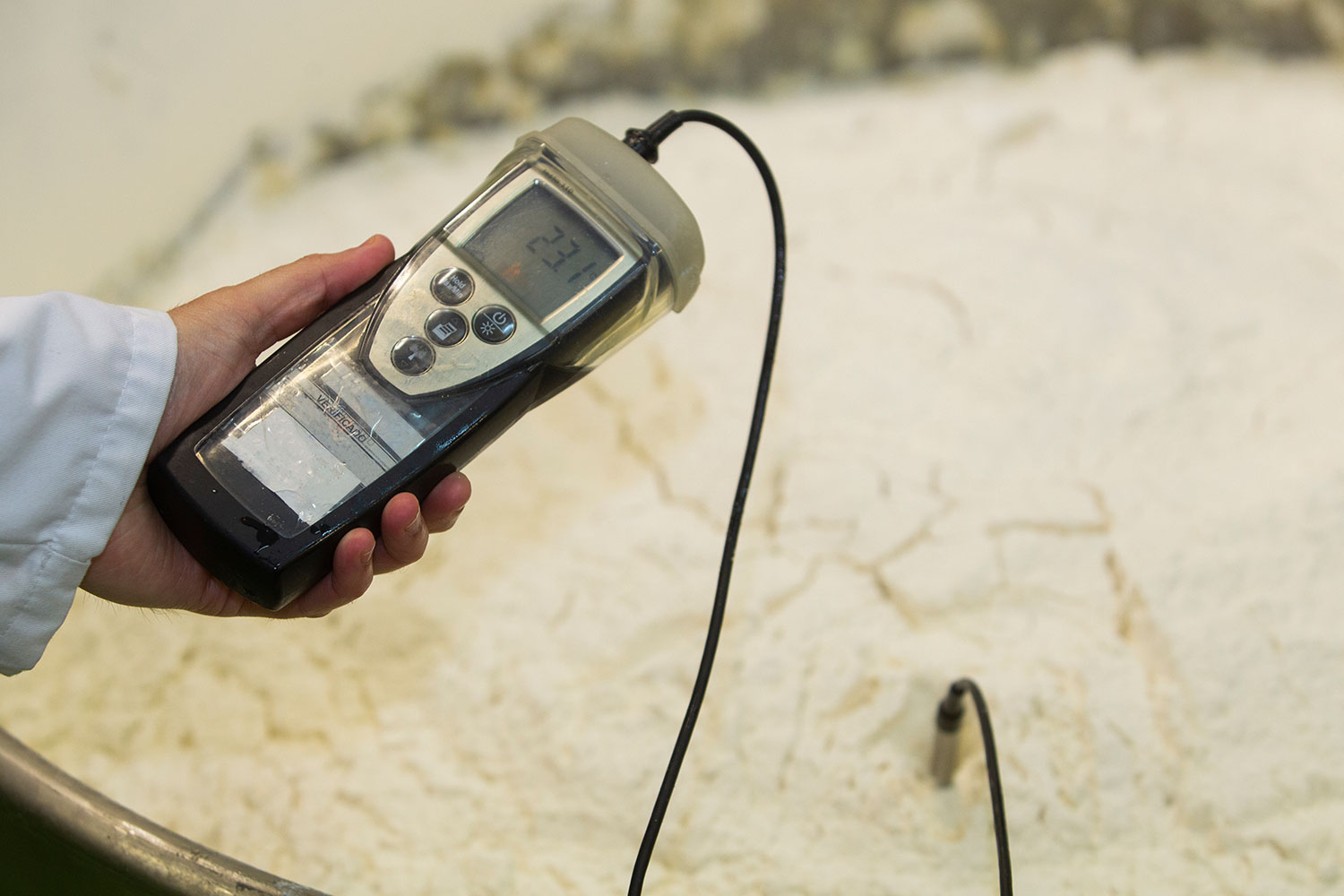
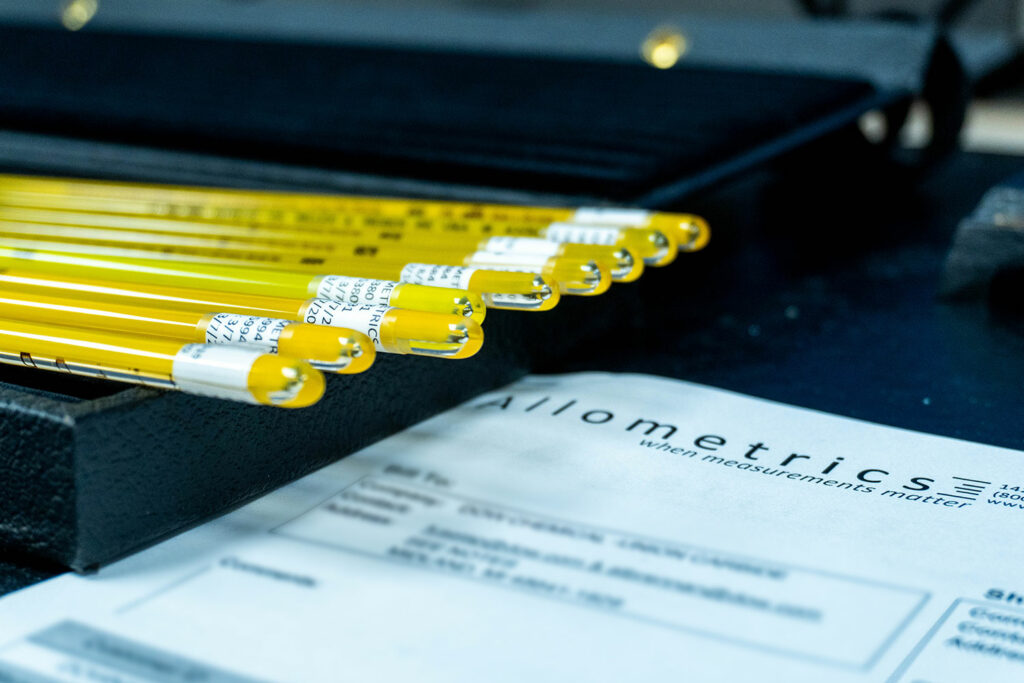
Why is Thermometer Calibration Necessary?
Maintaining temperature-controlled conditions in industrial and manufacturing processes in diverse industries such as food processing, pharmaceutical, biomedical, and petrochemical is essential for both quality and safety controls.
Thermometer readings help workers maintain the ideal temperature conditions. However, like all other measurement instruments, thermometers can suffer drift over time. Regular thermometer calibration will ensure accurate and precise temperature readings.
Why Liquid in Gas Thermometers (LIG) Need Regular Calibration
Every time a LIG thermometer is heated, the liquid in the interior of its bulb expands, forcing it into the capillary. It is from the liquid’s location inside the capillary that plant employees can determine the temperature value.
However, the repeated heating and cooling cycles impart stress to the bulb. Over time the wear and tear will cause slight changes in bulb volume due to the continued expansion and contraction, leading to inaccuracies in temperature readings.
Why You Need to Calibrate Your Digital Thermometers
Ordinary thermometers have a limited range, and can easily get damaged at very high temperatures. Digital thermometers, however, utilize thermocouples, which is a type of a temperature sensor device, used for measuring a broad range of temperatures.
The thermocouple devices used in various industrial applications can provide accurate readings of extremely high temperatures.
Digital thermometers are composed of two different metals that, when joined together, produce a small voltage. The thermocouple thermometer then reads the energy produced.
Many factors, including chemical exposure, exposure to temperatures above 200°C, or mechanical damage, can cause the thermocouple wires to lose homogeneity. The loss of uniformity will cause errors in temperature measurements. To ensure accurate temperatures are derived, thermocouples require regular calibration.
Thermometer calibration updates the indications and restores the accuracy and reliability of temperature measurement results.
Allometrics thermometer calibration compares the output of your instrument to those of a NIST certified primary master standard at the points specified by you or ICL. All our calibrations are in strict accordance with ASTM and NIST test methods.
After calibration, we will issue a new NIST Traceable certificate of calibration. This certificate is guaranteed to meet the following quality standards and requirements:
- ISO/IEC Guide 25
- ISO/IEC 17025 (when accredited calibration is specified)
- The FDA
- The EPA
- ISO 9000
- QS 9000
It’s important to remember that regular calibration intervals and updated document traceability to NIST are imperative to retain compliance requirements for most quality programs, including the ISO 9000 series.
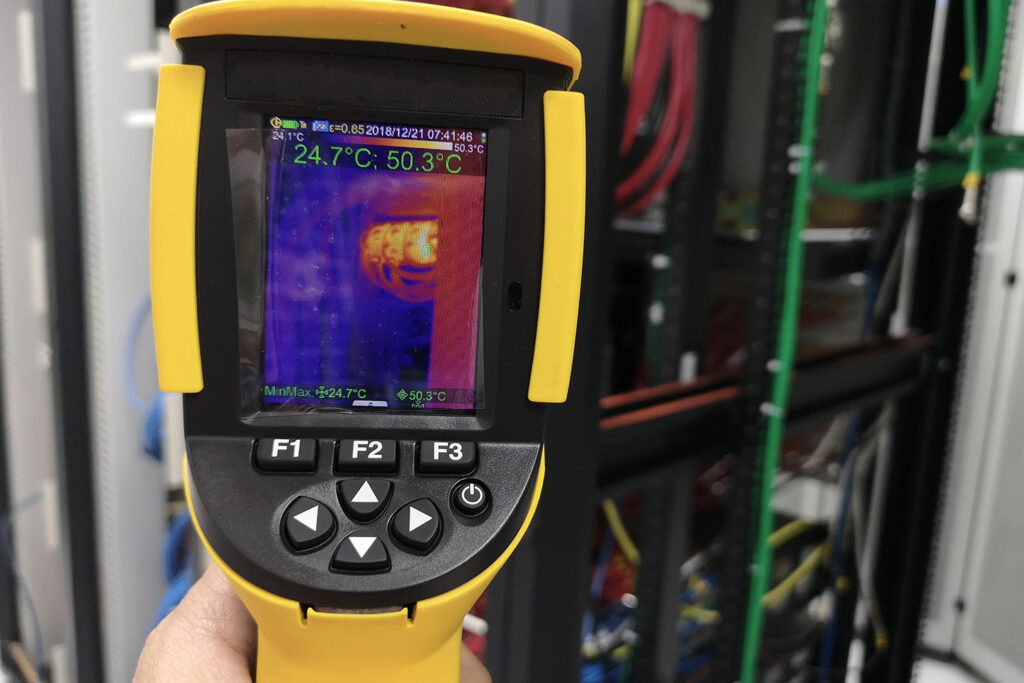
How Often Should You Calibrate Your Thermometers?
Calibration intervals vary depending on:
- Manufacturer Specifications
- Frequency of Use
- Usage Temperature Ranges
- the Regulatory Agencies or The Quality System Compliance Requirements
For most industrial and laboratory applications, a calibration interval of one year is prudent. However, if you notice any inconsistencies in your temperature readings, we strongly suggest you contact us immediately to schedule a thermometer calibration service.
Thermocouple Calibration
Thermocouples are now the most commonly used type of industrial temperature sensor. Their popularity is in part due to their relative inexpensiveness, added to the fact that they can measure a variety of temperatures and are easily interchangeable.
Thermocouples have both science and industry applications, including temperature measurements for gas turbine exhaust, kilns, diesel engines, as well a wide range of other industrial processes.
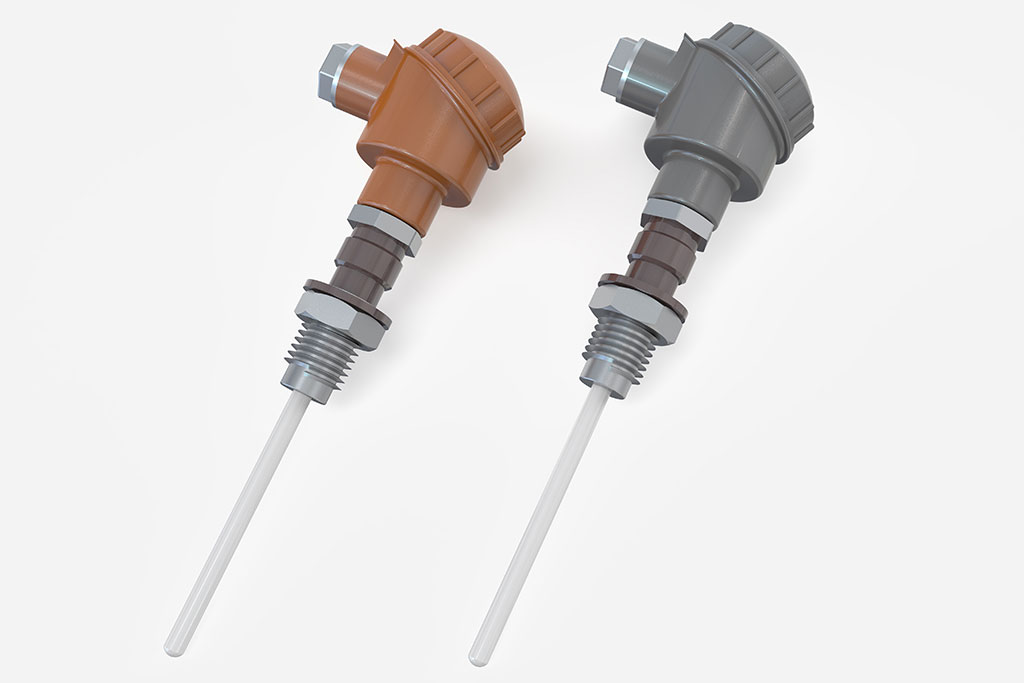
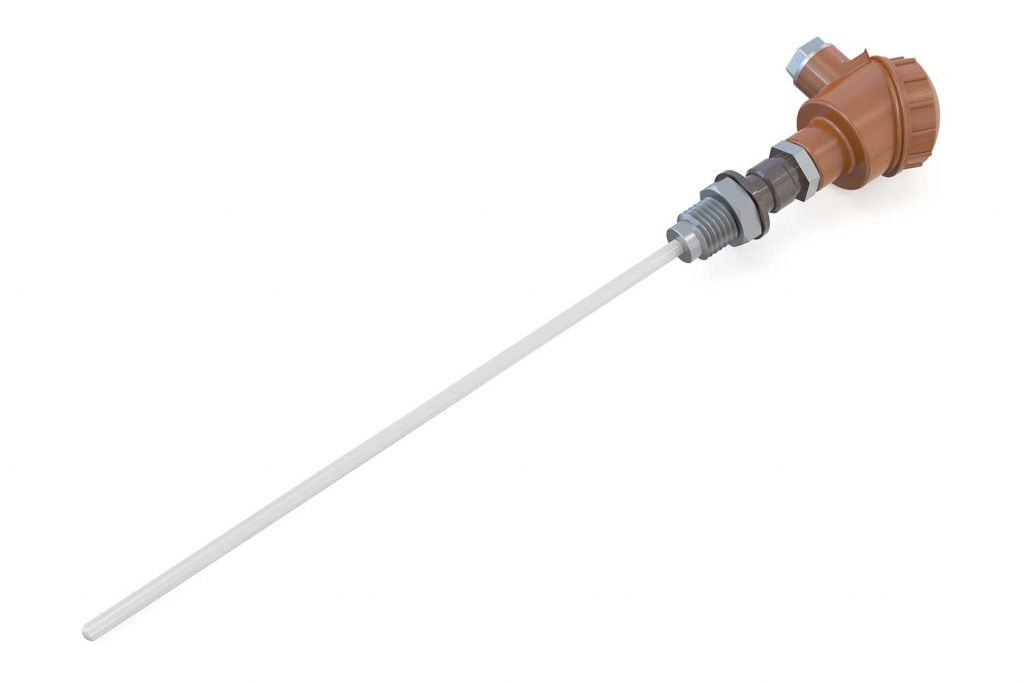
The need for Thermocouple Calibration
Thermocouples use what is known as the “Seebeck” or thermoelectric effect to determine the temperature differences that result from voltage measurements between the two electrical conductors.
For the measurement voltage to be accurate, each wire needs to be homogeneous. However, thermocouple wires lose their homogeneity over time, and as a result of environmental factors such as chemical exposure or mechanical damage.
Therefore, to guarantee accurate measurements, thermocouple calibration is required.
Allometrics Thermometer Calibration Capabilities
We offer a wide range of thermometer calibration capabilities, including:
- Industrial Liquid-in-Glass Thermometer Calibration Solutions
- Food Thermometers & Digital Thermometer Calibration
- Infrared Thermometer Calibration
- Platinum Resistance Thermometer Calibration (PRT Calibration)
- Resistance Thermometer Calibration (RTD Calibration)
- NIST Traceable
- Accredited Temperature
- Dostmann Calibration
- IR THERMOMETER
- TYPE K
- TYPE J
- TYPE T
- TYPE N
- K TYPE
- T TYPE
- N TYPE
- J TYPE
- FAHRENHEIT
- CELSIUS
- KELVIN
- RANKIN

Allometrics offers temperature calibration services in our state-of-the-art ISO 17025-accredited temperature calibration laboratory; additionally, we provide on-site calibration services. Certified engineers do all our calibration services.
